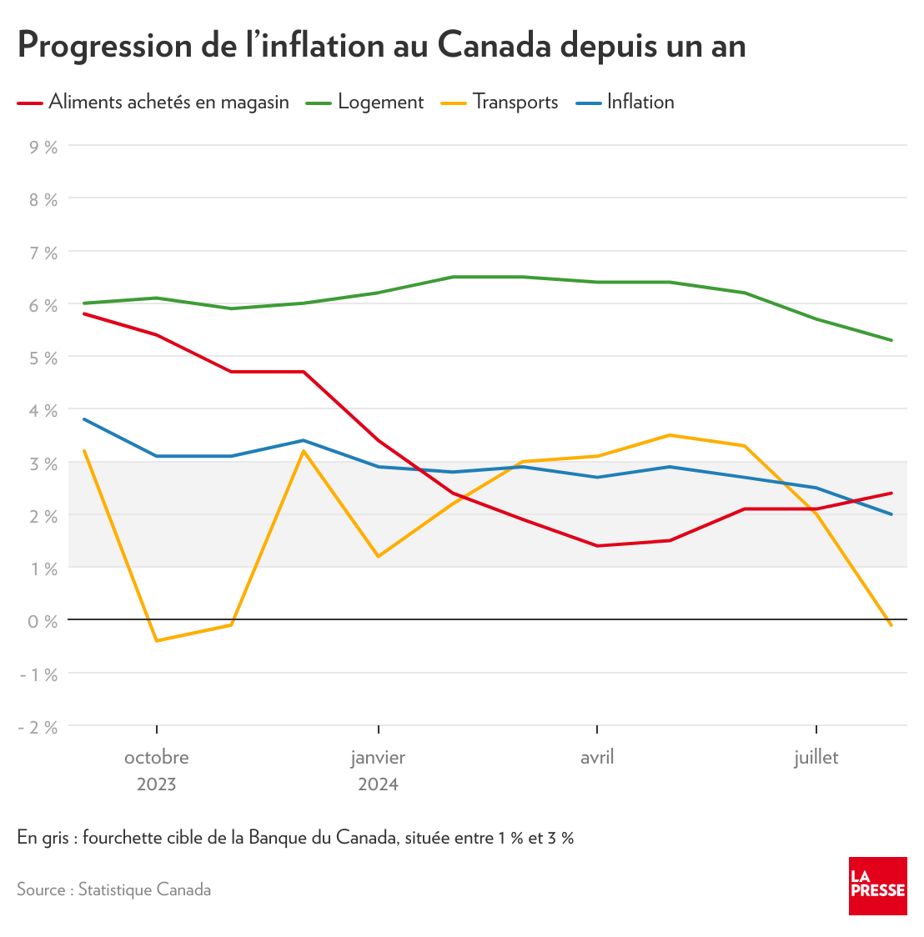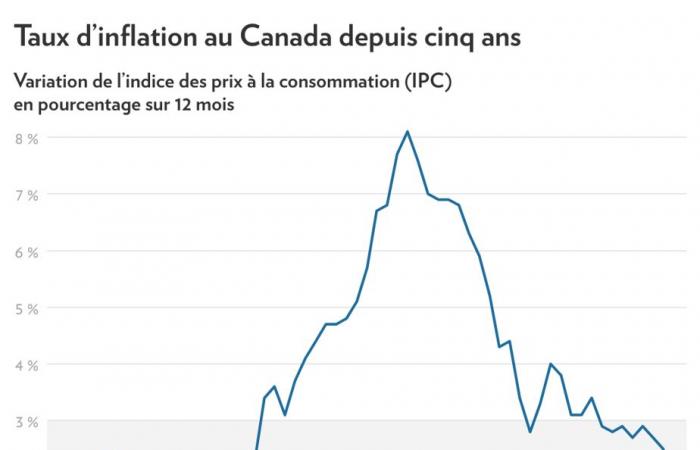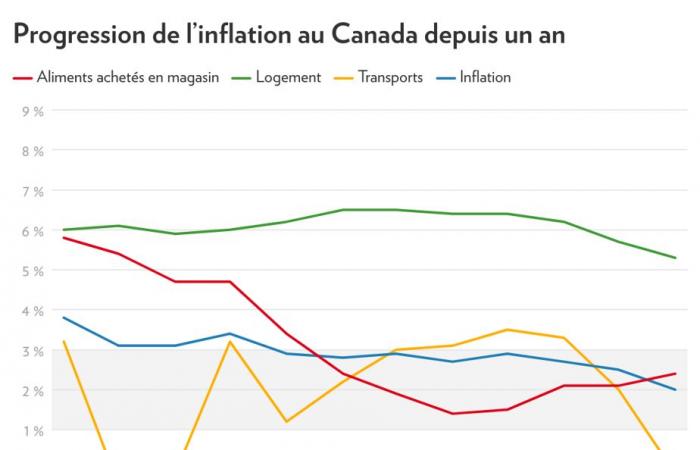Inflation continued to decline in August to 2%, right on target for the Bank of Canada, which aims for a range of 1% to 3%. The Consumer Price Index (CPI) measured by Statistics Canada is at its lowest since February 2021 and could continue to weaken in the coming months.
Published at 1:17 a.m.
Updated at 5:00 a.m.
Is the war on inflation over? Yes, according to National Bank economists. “Generalized inflation is over in Canada,” say Matthieu Arseneau and Kyle Dahms. At 4.25%, the Bank of Canada’s key rate is still much too high, they say. “The recent cuts [trois au total] have not been large enough to make monetary policy less restrictive,” they say, which could cause more damage than necessary to the labor market.
Excluding the cost of mortgage interest, on which central bank decisions play a role, inflation is at a level of only 1.2%, they note.
“We believe the door is wide open for the Bank of Canada to bring its key rate back to between 2.5% and 3% as quickly as possible by making more significant rate cuts than has been done to date.”
Too early to claim victory
“It is too much for the Bank of Canada, which is maintaining a cautious bias, to claim victory in its fight against inflation,” believes Randall Bartlett, economist at Desjardins.
The central bank governor has in fact repeatedly said that the important thing was not to reach the inflation target, but to maintain price stability before giving up.
The decline in inflation is mainly due to a drop in gasoline prices, according to Statistics Canada. With a change of 2.7% in August 2024 compared to August 2023, food prices are still increasing at a rate higher than the CPI, which measures overall inflation. And housing prices continue to fuel inflation with a 5.3% increase year over year. Also, the increase in mortgage interest costs remains high, but it is slowing and will continue to decelerate with the decline in interest rates.

However, the core inflation measures tracked by the Bank of Canada bode well for the future, the Desjardins economist points out. These two measures, the median CPI and the trim CPI, remained below 3% in August for the sixth consecutive month.
Towards a drop of 50 points?
Before declaring inflation defeated, it is very possible that the rate cuts initiated by the Bank of Canada will accelerate, believe several economists.
In its next decision next month, the central bank could decree a cut of 50 basis points, bringing its key rate down to 3.75%.
The economy is slowing more than the Bank of Canada expected and the unemployment rate continues to rise. Governor Tiff Macklem has begun to publicly worry that the economic slowdown is too severe.
Economist Randal Bartlett is predicting a 50 basis point cut next month, followed by a return to gradual 25-point cuts thereafter.
For his part, Bank of Montreal economist Benjamin Reitzes believes that the central bank’s decision will depend on the next inflation reading, the September reading, which will be published on October 15, before the decision on the key rate on October 23. “If inflation surprises again on the downside, the 50-point cut becomes more likely,” he estimates.
Learn more
-
- 1.3%
- The annual growth rate of inflation in Quebec fell from 2.5% in July to 1.3% in August, which is lower than the Canadian average of 2%.
Source: Statistics Canada







